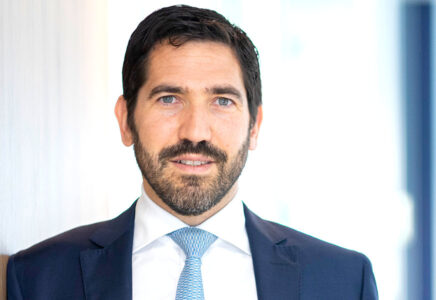The wave of consolidation among European asset managers is picking up pace as BNP Paribas enters “exclusive negotiations” to acquire AXA Investment Managers for €5.1bn – a partnership that would create a €1.5trn behemoth for the EU buy-side.
Announced after the EU close yesterday, the deal would see the BNP Paribas Group acquire 100% of AXA IM (amounting to around €850bn AUM) for an agreed price of €5.1bn, along with a long-term partnership to manage a “large share” of the assets of its parent company, AXA – a multinational insurance company with over €945bn AUM as of 2023.

The announcement followed positive results from AXA of €4.2bn for the first half of the year, 7% better than analyst consensus expectations. “AXA Investment Managers has been a homegrown success story for the AXA Group,” said AXA CEO Thomas Buberl. “By joining forces with BNP Paribas, AXA IM would become a global asset manager with a wider product offering and a mutual objective to further their leading position in responsible investing.”
A perfect fit?
The deal, first rumoured in the press over a month ago, would at first glance seem to be a perfect fit for BNP Paribas, which manages around €537bn through its own Paris-based asset management arm. Its own insurance business, BNP Paribas Cardif, will also use the new platform to manage around €160bn of savings and insurance assets, sad the firm – although some questions have been raised on this, with analysts at Morgan Stanley querying why Cardif is only including €160bn of its AUM rather than the full €265bn, although they did confirm that “from a longer-term perspective we could see value” in the merger.

Together, the two asset management platforms (AXA IM and BNP Paribas Asset Management) would create a €1.5trn giant with a regional dominance in long-term savings products across both public and private markets – and would see the assets of BNP Paribas Group’s Investment & Protection Services (IPS) division exceed €2trn.
“This project would position BNP Paribas as a leading European player in long-term asset management,” said BNP CEO Jean-Laurent Bonnafé.
A crowded landscape
The French asset management sector is one of the largest in continental Europe, with over 650 asset management companies employing around 85,000 people and managing client assets of over €4.6trn (including over €550bn in assets for foreign investors), making it the biggest market in the EU by AUM with over a third of total assets in the region, with over 50% of French asset managers commercialising their funds on a cross-border basis. The industry is skewed slightly towards bonds, which make up around 54% (€1.75trn) of direct investments in securities according to June 2024 figures from the French Financial Management Association (AFG); while 33% goes to equities (€1.07trn) and around 14% (€410bn) to money market funds.
The French industry is also heavily domestic, with over 60% of equities invested in EU assets (compared to an EU average of just 32%), while the AFG notes that: “French asset management is essential for French capital markets”, accounting for 15% of listed shares, 19% of non-financial corporate bonds and 48% of monetary securities of financial institutions.
The tip of the iceberg
However, the over-populated EU asset management industry is long overdue for consolidation, a trend that is gathering momentum this year with several major moves, including the recent “strategic” decision from Paris-based Groupama Asset Management (AUM circa €1.8bn) to join forces with outsourced dealing provider Amundi Intermediation – while in February this year Amundi (the largest asset manager in Europe with €2trn AUM) also agreed to acquire Zurich-based alternatives asset manager Alpha Associates in a €350bn deal to expand its private markets offering.
What might we see next? A PwC study has suggested that the bloated EU landscape with growing margin pressures on firms across the board sparking an acquisition race that could see could result (according to a recent PwC survey) in one in six European asset managers disappearing by 2030.
“European asset managers are contending with profit contraction, shifts to passive funds, growth in unmanaged assets, and more,” agreed McKinsey in an April 2024 study. “Dwindling profits and increasingly divergent growth trends in 2023 have further widened the gap between the best and the rest.” European asset management industry profits are down -32% since 2021, while the profitability gap between top and bottom-quartile asset managers has widened, with an estimated profit margin delta of 28%.
“Transforming these changes into opportunities will involve significant investments into the business. This presents an opportunity for asset managers that position themselves to thrive in an industry undergoing radical change,” said McKinsey’s Sid Azad.
Lessons from history
Of course, not all deals are successful. The high-profile failure of Liontrust to acquire GAM late last year has seen the firm struggle with ongoing asset outflows, for example. But others have been a pattern for success – Jupiter’s 2020 acquisition of Merian Global Investors helped the firm stabilise and navigate through the coronavirus chaos, and despite headwinds the firm has delivered reassuring results in recent years, with an 11% jump in profits for the first half of 2024 pushing a share price rally and with CEO Matt Beesley reportedly now on the hunt for further acquisitions.

But as consolidation continues, casualties are inevitable – so what can we expect from the BNP/AXA merger?
Both trading desks are headed by experienced hands, with Yannig Loyer leading AXA IM as global head of trading since 2018 and BNP Paribas Asset Management led by BNP lifer Ines de Tremiolles, who has been with the firm for over 20 years.
Will both remain with the new platform, or could we see a shift in leadership? Notably, both are based in Paris, with the merged firm almost certainly making its home there also. What might this mean for the firms’ London operations, and could there be cuts on the horizon?
BNPP AM UK is headed by Roger Miners, who has been with the firm since joining from Allianz in 2016. The firm declined to comment further when contacted by Global Trading, noting that it was “very early stages”.

As one trader pointed out, given the strict merger controls and powerful unions in France, it could be a while before we hear anything material regarding the logistics of the deal.
The acquisition is expected to complete by mid-2025, according to a statement from BNP Paribas.
© Markets Media 2024.

